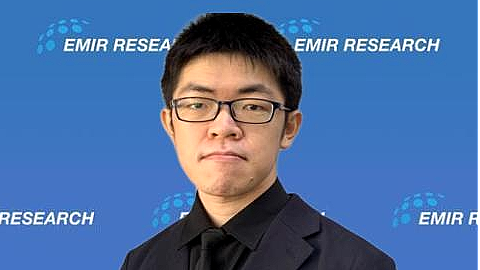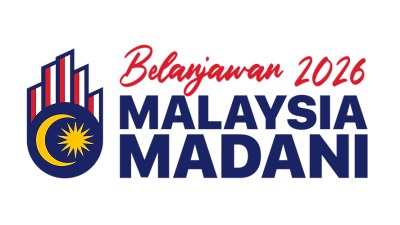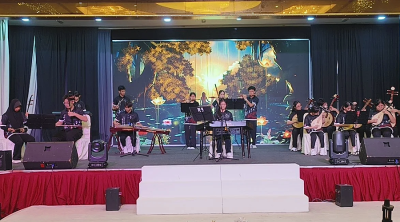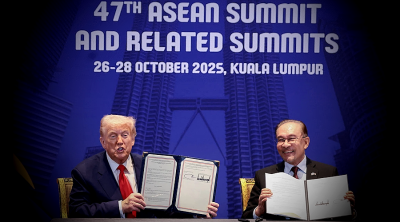
Humans are an incredible species, having achieved extraordinary feats—especially in the past century.
We reached space just six decades after the first powered flight. Today’s smartphone has thousands of times more computational power than the machine that sent a man to the moon.
With techniques dating back to the 10th century, we eventually eradicated smallpox.
Measles vaccination accounts for 60 percent of lives saved, and over the past 50 years, vaccines for 14 diseases have cut infant deaths by 40 percent globally and over 50 percent in Africa (World Health Organization, 2024).
To this day, vaccination remains the only effective treatment for rabies, which has a 100 percent fatality rate in the unvaccinated.
This progress stems from scientific and technological advancement—made possible by nations setting aside differences to pursue knowledge together.
Yet the very system behind these breakthroughs—academic freedom backed by sustained funding—is now under siege.
From the US funding cuts to structural constraints in Malaysia, science faces mounting political and institutional pressures.
Under President Trump, research funding was slashed at will—putting the global scientific community at risk and reversing years of progress.
The Harvard Gazette (2025) interviewed researchers affected by the funding freeze. Some warned their work would vanish entirely without continued support, including studies on tuberculosis immunity and gut neuron aging, with implications for neurological diseases.
This affects not only research progress but also the people involved, especially emerging talents.
Although the cuts mainly affect US-based universities, the impact is global.
US institutions anchor countless international research efforts, especially in climate science, global health, and advanced technologies. Curtailing their work may delay progress and fragment the global knowledge ecosystem.
These cuts—including the US$400 million withdrawn from Columbia University—aim to punish institutions for their Diversity, Equity, and Inclusion (DEI) programs and positions on Palestine, where ceasefire calls are framed as support for terrorism and labelled as anti-Semitic.
This politically charged culture war, driven by conservatives hostile to science that challenges their worldview, is undermining research that could benefit humanity—and when academic freedom erodes, society pays the price.
Instead of fostering an inclusive, knowledge-based future, the Trump administration is pulling funding from research on “climate change”, “equitable society” and “women in society” (The Guardian, 2025).
This ideological censorship threatens entire fields—with women’s health being just one stark example of the consequences.
Because women were long excluded from clinical trials, critical conditions such as heart attacks often present differently and go unrecognized—even by trained doctors (Harvard Health Publishing, 2018; European Society of Cardiology, 2021).
Pregnant women remain excluded from many studies today, leaving gaps in treatment safety and efficacy.
Without inclusive, well-funded, and politically independent research, these blind spots will persist—with serious consequences for public health.
Can the global research community fill the vacuum left by what was once the world’s leading funder?
The challenge highlights just how deeply global science has relied on US institutions—and why countries like Malaysia must now accelerate efforts to build their own research capabilities: financially, structurally and in terms of talent.
This includes tackling brain drain. As EMIR Research noted in “Overqualified for their jobs, or underqualified as graduates?” misalignment between higher education, industry demand, and research incentives drives skilled Malaysians abroad—weakening our innovation ecosystem just as global R&D leadership shifts.
EMIR Research has previously noted that shifting global push-and-pull dynamics are prompting Chinese nationals to return home (refer to “The futility of resisting English: A barrier to national progress”).
While US hostility towards certain sciences—particularly under Trump—has played a role, equally important are China’s rising R&D investments and reforms aimed at attracting and retaining talent.
While the US rolls back funding for climate and green energy research, China is accelerating—most notably with the world’s first operational thorium-based nuclear reactor, offering more abundant fuel and lower proliferation risks.
Despite concerns over human rights and transparency, China’s sustained R&D drive stands in stark contrast to recent US trends.
Meanwhile, the European Union (EU) has allocated half a billion Euros to draw global scientific talent (Reuters, 2025)—signaling a broader recalibration of research leadership.
In this fluid (and opportune) moment, Malaysia must not be left behind.
This recalibration is about more than funding or geography—it’s about values, structures, and priorities.
To stay competitive, we must urgently recalibrate our ecosystem.
This demands stronger government commitment and a serious rethink of how academic institutions are governed and how academic freedom is upheld. Yet, it is never simple.
According to Da (2022), “academic freedom” is among the most misunderstood concepts in academia—and in Malaysia, it has clearly been curtailed.
On the surface, Malaysian public universities have gained more autonomy compared to before, with our top university—Universiti Malaya (UM)—aiming to further reduce government reliance and become fully independent in governance, admissions, finance, and academics (Bernama, 2025).
While this addresses part of the equation, academic freedom involves far more.
Da (2022) systematically identified three key impediments to academic freedom: the Statutory Bodies (Discipline and Surcharge) Act (Act 605), weak institutional autonomy, and external interference.
UM’s efforts focus on institutional autonomy—commendable, but not enough. The government must do more to ensure academic staff in Malaysia have the support and freedom needed to achieve meaningful outcomes.
Instead of restricting discourse through cautious regulation or indirect pressure, the government and universities should foster open, critical engagement.
This upholds academic freedom and nurtures the analytical mindset essential for innovation and nation-building.
The best way to cultivate future research talents is to let students question, think, and discuss—not reduce them to passive memorization in lecture halls.
But academic freedom alone is not enough. Without a system that turns investment into real-world results, research risks becoming a numbers game.
That’s why EMIR Research has long advocated institutionalizing the Input-Output-Outcome-Impact (IOOI) framework across Malaysia’s R&D and policy ecosystem—to ensure funding and talent lead to measurable innovation and societal impact.
As argued in “Closing the gap: Strategies for Malaysia to excel in the global innovation index”, research strategy must go beyond volume metrics and track commercialization, policy relevance, and public value.
In October 2025, the Ministry of Science, Technology, and Innovation (MOSTI) projected Malaysia’s gross domestic expenditure on R&D to reach 2.5 percent in 2025 and 3.5 percent by 2030 (Malay Mail, 2024).
Yet Govindaraju et al. (2020) found that while additional funding boosts publications and patents, overall efficiency remains weak due to poor innovation and value creation.
Non-research universities often chase revenue, whereas research universities focus on low-hanging fruits to justify funding and meet performance metrics.
This may help explain why Malaysia ranks among the top countries for academic paper retractions (Malaysiakini, 2023), suggesting that institutional pressure to publish—regardless of quality—could be distorting academic priorities.
Academic integrity aside, these inefficiencies raise a fundamental issue: if Malaysia aims to join the ranks of innovation-driven nations, our research must serve society—not just institutional metrics.
Crucially, a world-class research system can’t stand on a weak educational base. As EMIR Research stressed in “Urgent need to reform Malaysian education system,” any serious innovation agenda requires overhauling how we teach, assess, and prepare future researchers.
The system must equip students with not just technical skills, but also critical thinking, multilingual fluency, and interdisciplinary agility—the foundations of innovation in the 21st century.
We cannot repeat the mistakes that triggered this global shift—cuts to funding, attacks on scientific integrity, and the erosion of academic freedom. Nor can we continue business as usual amid shifting global dynamics.
To thrive in this new landscape, Malaysia must recalibrate—urgently and deliberately.
We need a research system grounded in freedom, impact, and structural integrity. This is not just a scientific imperative—it’s a national one.
(Chia Chu Hang is a Research Assistant at EMIR Research, an independent think tank focused on strategic policy recommendations based on rigorous research.)
ADVERTISEMENT
ADVERTISEMENT







































